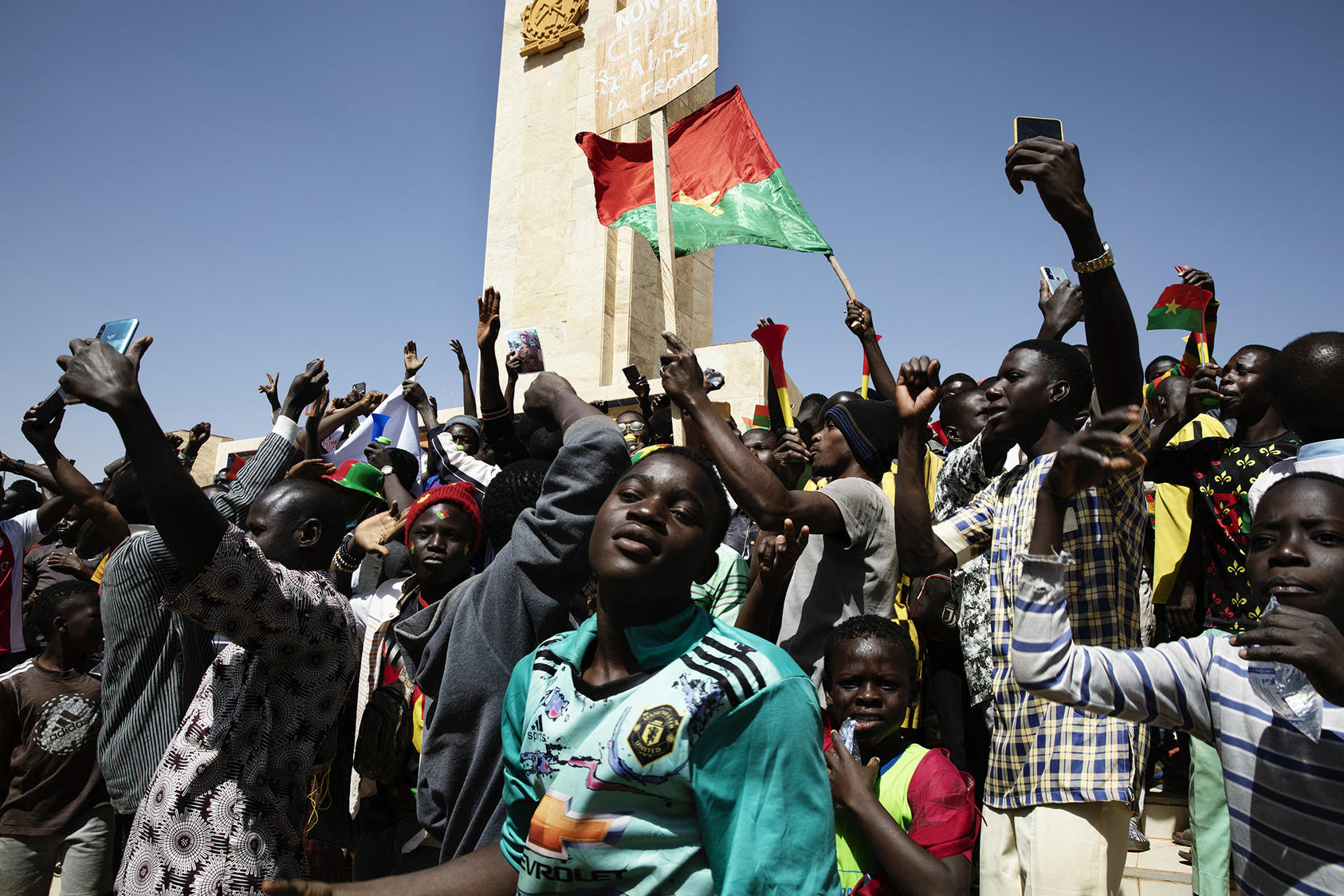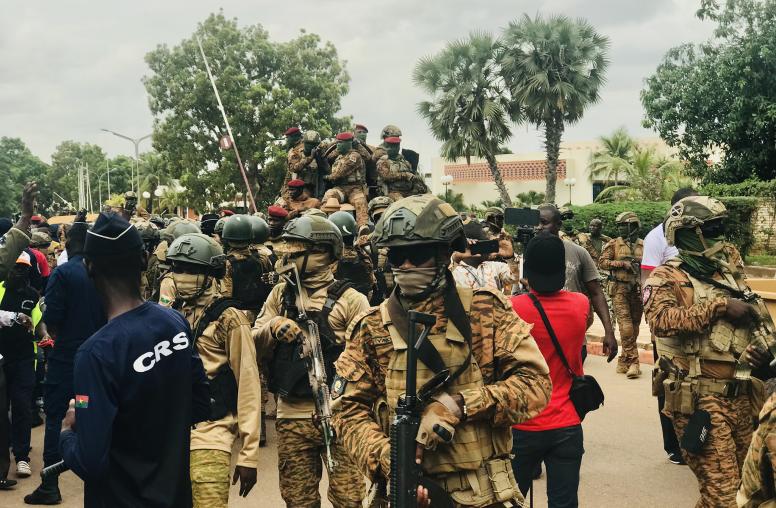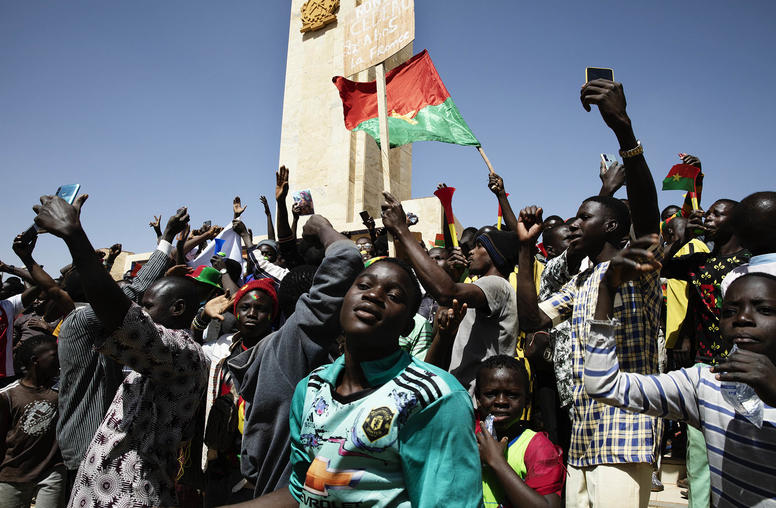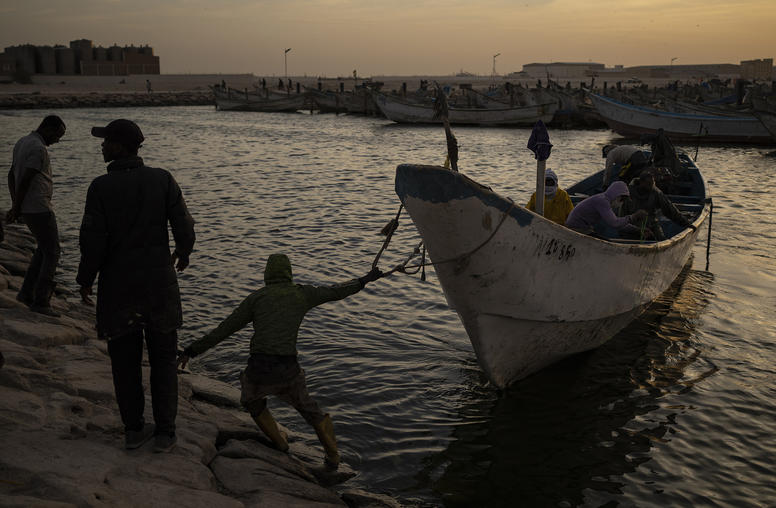A Sixth Coup in Africa? The West Needs to Up Its Game.
Crisis in Guinea-Bissau, coup in Burkina Faso reflect how ‘stabilization’ policies fall short.
The government of Guinea-Bissau says it survived an attempted coup d’état yesterday, just days after Burkina Faso suffered the fifth coup in nine months around the greater Sahel. These upheavals cement this African region as the most pronounced center of a global crisis: Poor and authoritarian governance is breeding extremism and transnational criminality, igniting violence and undermining efforts to build democracies. Following last year’s military power grabs in Chad, Mali, Guinea and Sudan, the new crises highlight widening risks to security — for the 135 million people of the Sahel region, and ultimately for Europe and the United States. They also point to changes needed in U.S. and international policies.

While the full nature of yesterday’s attack in Bissau remains unclear, it sets back that country’s already difficult struggle toward a stable civilian democracy. Last week’s coup in Burkina Faso was, if anything, a greater setback, domestically and for the Sahel region. It also appears to reflect how rivalries between outside powers — in this case France and Russia — are combining with popular grievances to produce coups in fragile states. Joseph Sany, a scholar and peacebuilding expert who heads USIP’s programs in Africa, underscored the dangers reflected in these latest crises and suggested changes to U.S. and international practices to counter these risks.
What do these latest coups mean for security in this swath of Africa, and for America’s pro-democracy agenda, just seven weeks after Washington’s Summit for Democracy?
Joseph Sany: The full situation in Guinea-Bissau remains uncertain, but that crisis and Burkina Faso’s coup risk deepening a divide between authoritarianism and democratization in a region whose governments for years have been quite unified in insisting on democratic rule. This undermines the regional cooperation — in this case, under the aegis of the 15-nation Economic Community of West African States, or ECOWAS — that has to be at the center of promoting democracy in fragile states and regions, as the Summit for Democracy and its follow-on efforts seek to do.
In Burkina Faso, Islamic extremist groups could now take advantage of the coup to tighten their grip in areas under their control, which they expanded over the past year. A risk here is that the army will now focus on consolidating its political power and lose focus on its mission to preserve the country’s territorial integrity, particularly by tackling violent extremism. That violence spread into Burkina Faso’s northern edge as recently as five years ago — but now has spread nationwide, posing new risks to Côte d’Ivoire, Ghana and Benin.
The coup in Burkina Faso also may further weaken the joint effort by Sahel countries to secure their region against the violent extremist groups, which are affiliated with al-Qaeda and ISIS. This effort, called the G5 Sahel, already is fragile. Actually, it is hard to believe that the G5 Sahel and its joint military force can effectively sustain its missions while tensions among its members are so high. Among these five countries — Chad, Mauritania, Burkina Faso, Mali and Niger — ECOWAS has now suspended Mali and Burkina Faso following their coups. This risks further undermining military cooperation in the fight against terrorism around the Sahel and could aggravate the insecurity that has helped ignite the coups d’état in the first place. Increased anti-French sentiment in the Sahel is also exacerbating strained relations between the French forces and militaries in the region.
Then where does this latest violence – Burkina Faso and Guinea-Bissau – move the needle in the effort to preserve or strengthen democratization in this region?
Joseph Sany: The violence in Guinea-Bissau, still not fully explained, represents a setback in an already labored effort to build democracy and stability. Guinea-Bissau had to fight for independence from Portugal as one of the last European colonies in Africa, and it has suffered from one-party or military rule, including something like 20 coup attempts, in its 48 years of independence. A pro-democratic civil society has slowly gathered, energized largely by youth. But we saw sharp partisan divisions and corruption impede the government, elected in 2019, from achieving basic functions. Transnational crime, including drug trafficking, weakens security in the country. And the president even had to call in the army last year to help him fully establish his government in the face of parliamentary opposition.
In 2014, people in Burkina Faso were at the forefront of democratic social movements to reclaim civic space in Africa. Their grassroots movement, Balai Citoyen [Citizen’s Broom], organized mass protests that forced the resignation of the autocratic Blaise Compaoré, who had ruled the country for 27 years after his own coup. The citizens then prevented an army coup attempt in 2015. This inspired millions of youth and other civil society organizations in sub-Saharan Africa. It may be disconcerting to now see images of some Burkinabe civilians, albeit relatively few, expressing support for this new coup. But it would be a mistake to interpret this support as a rejection of democracy. According to repeated surveys by the independent polling group Afrobarometer, 62 percent of Burkinabe in recent years rejected coups d’état. What we see now is not a rejection of democratic values but frustration at the failures of a democratic government to address insecurity and deliver on essential services.
What do these latest coups tell us about the right U.S. and international responses?
Joseph Sany: We will have more to learn about the circumstances of these new crises. But what we see so far suggests the importance of steps that pro-democracy and peacebuilding specialists already have laid out. In connection with the Summit for Democracy, we asked this question of a group of these experts. Their ideas, in brief, included:
- Bolstering the roles and capacities of regional bodies such as ECOWAS. Peer influence among any group of neighboring nations will always be vital.
- Focus more support on strengthening civil society and democracy in each country between elections, rather than focusing too narrowly, as we have done in the past, just on elections themselves.
- Be consistent by offering the incentives of partnership to governments and civil societies in strengthening democratic governance — and be as consistent in measured non-cooperation with military or autocratic rule. Too often, verbal condemnations of coups or autocracy have not been reinforced with concrete actions to address the insecurity that creates fertile ground for coups. Here, I want to stress a weakness that we may be seeing in the response to the Burkina Faso coup. The army there and the ECOWAS governments are arguing about the duration of a transition back to civilian rule. As we shape a transition, we must focus on not just the duration, but the substance of what will be done to ensure that the government in question begins meeting people’s needs. That is the failing that is causing coups in the first place.
- Support broad national dialogues to address the root causes of each country’s instability. These dialogues should set obligatory milestones to be met in transitions from military rule to civilian democracy. And the dialogues must include groups that historically have been marginalized, such as ethnic minorities, women, youth and grassroots groups. That inclusion is instrumental in achieving the kinds of changes that bring peace.



